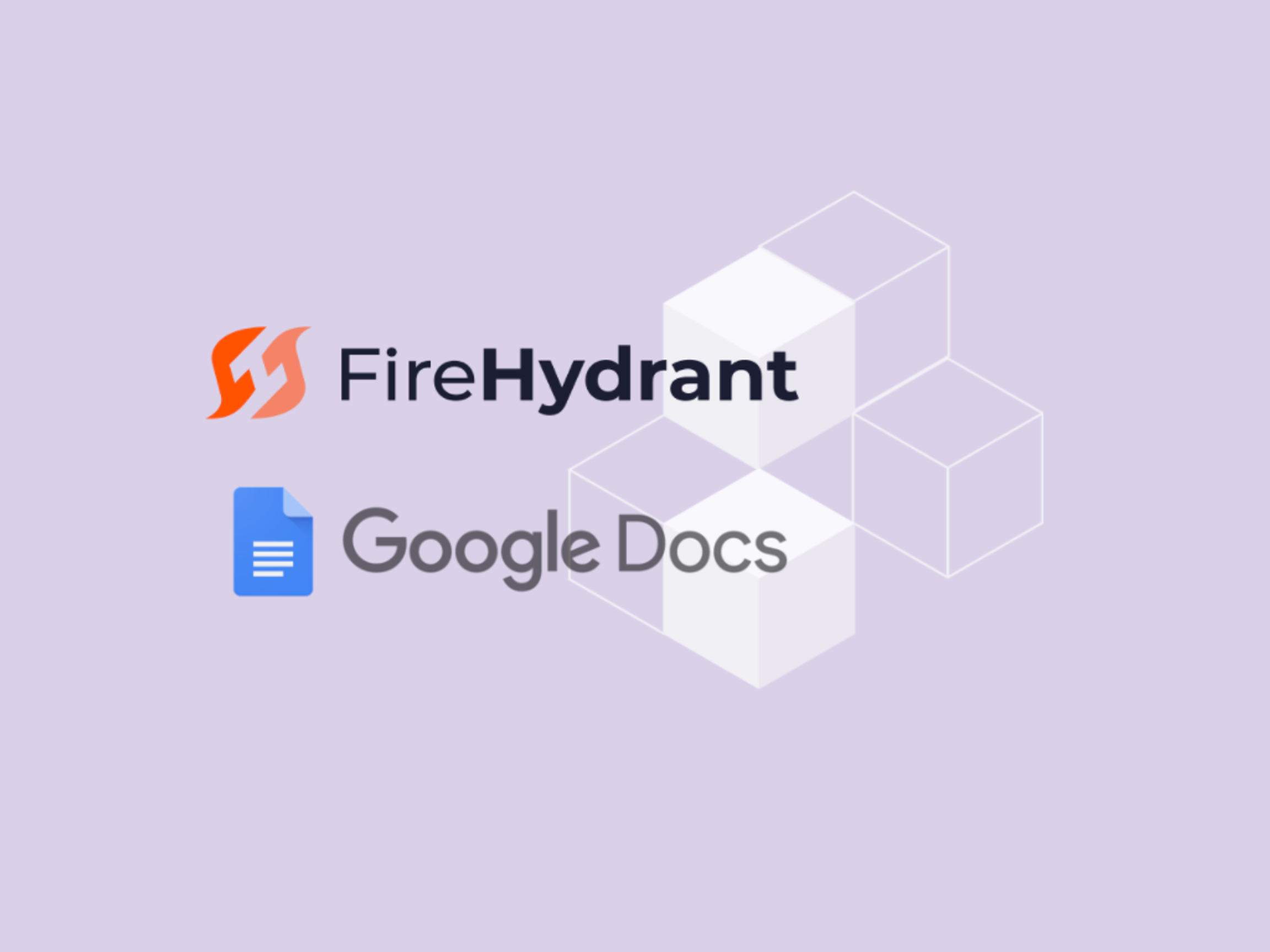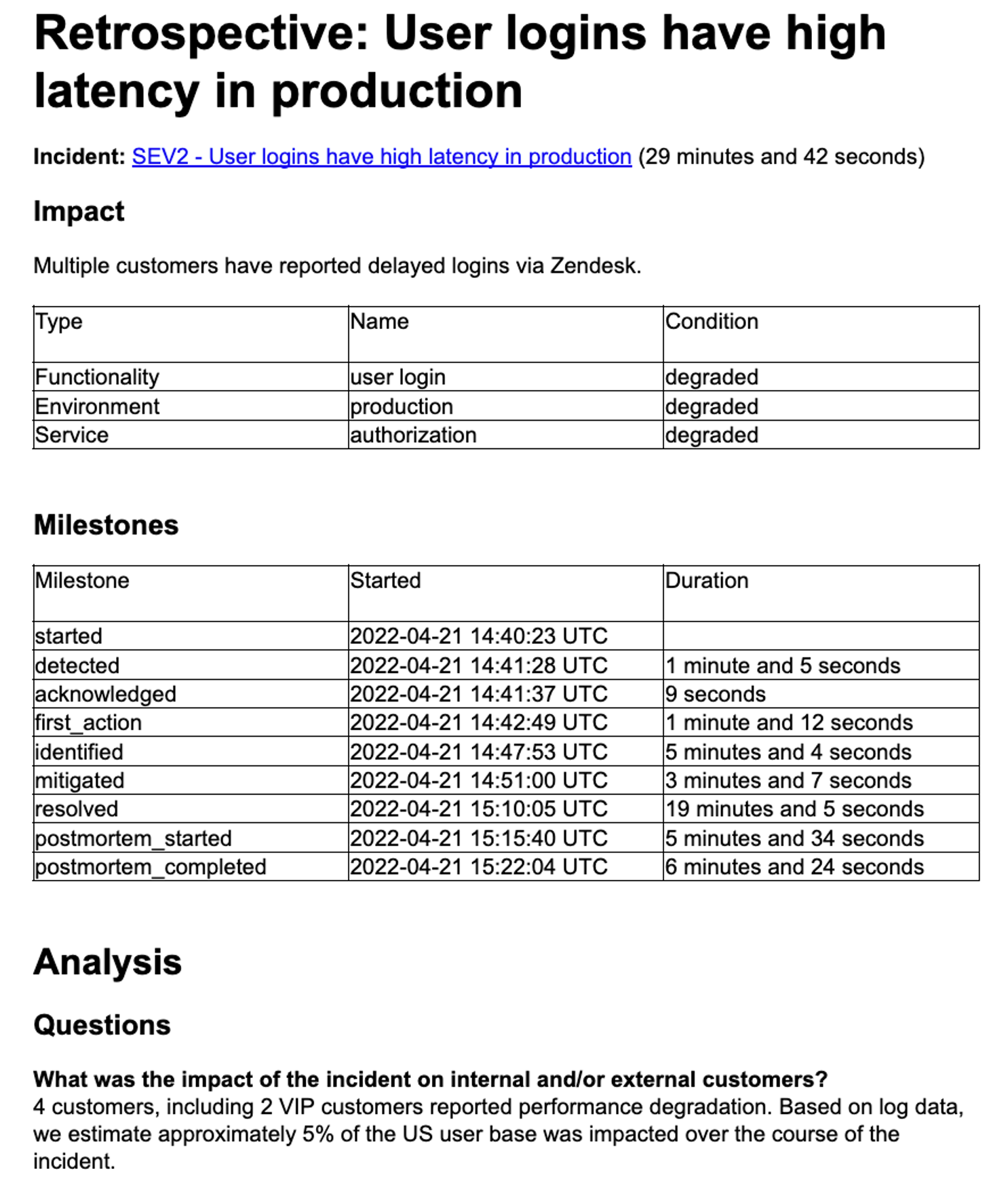Collaboratively author retrospectives with our new Google Docs integration
Use our new Google Docs integration to export incident data and work collaboratively on retrospectives, all while maintaining traceability back to your FireHydrant incident.

When it comes to learning from incidents, your tools should adapt to the way your organization works. Many of you conduct your retrospectives in rich-text document editing tools, like Google Docs. That’s why we’ve introduced the option to export your retrospectives to Google Docs.
Retrospective export to Google Docs can be automated as part of your incident management process with a Runbook step. To minimize tedious formatting, you can customize your exported retrospective document format and data with basic markdown and dynamic templating variables.
How it works#how-it-works
You can set up your Google Docs integration through standard GSuite app authorization. Once the integration is configured, simply add a Runbook step to export the retrospective to Google Docs once the retrospective has started. During Runbook step setup you can also configure the format and incident data content or use the defaults provided.
Once the Runbook export step is triggered, the Google Doc will be generated and available for collaboration. As shown in the following example, a link is retained at the top of the retrospective for traceability.

Here is an example of the same retrospective exported to Google Docs:

Learn more#learn-more
For more information on configuring and using our Google Doc retrospective export, runbook configuration, or using templating variables, check out our documentation: